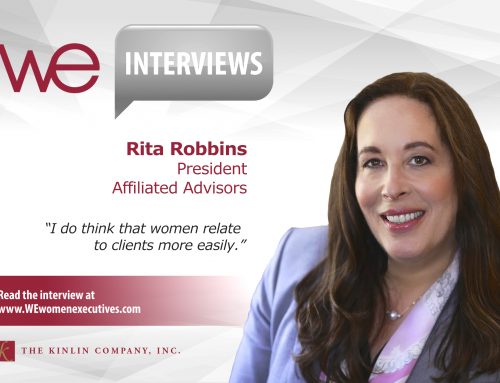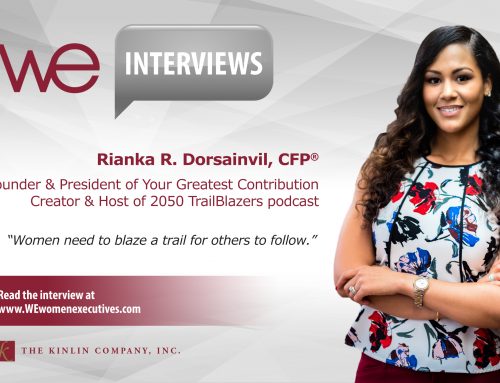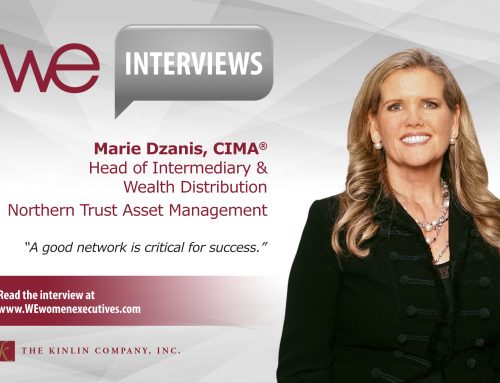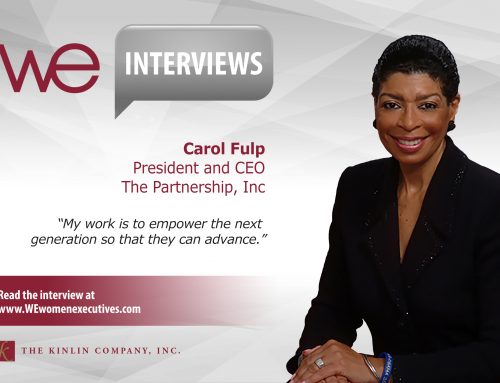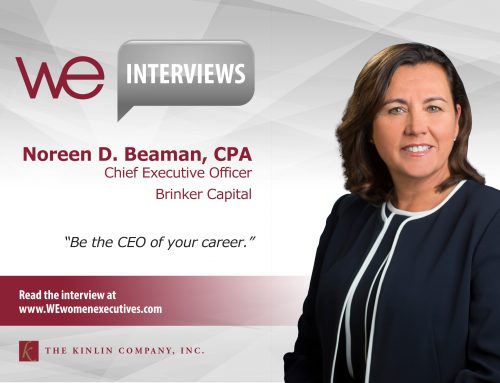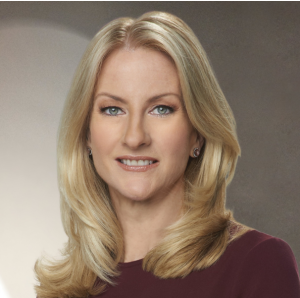 Mary Thompson
Mary Thompson
Reporter
During her tenure as a general assignment reporter for CNBC, Mary Thompson viewed herself as a “utility infielder,” responsible for covering a variety of different industries and issues. Thompson joined the network in 2000 after nine years with Bloomberg radio and television. Her main focus at CNBC was financial firms such as Goldman Sachs and Morgan Stanley, together with insurers. Additionally, Thompson did stories on executive compensation and corporate governance and backed up colleagues Bob Pisani at the New York Stock Exchange and Steve Liesman on topics concerning the Federal Reserve, economics and bank regulation.
Thompson also hosted ‘Where the Jobs Are,’ a series focused on corporations seeking skilled workers at a time when the unemployment rate was high. When the rate dropped, Thompson shifted the series’ focus to a consideration of the skills needed to secure a high paying job in the future.
Thompson left CNBC on July 1, 2016 to start what she characterizes as the third phase of her career. We met in New York shortly after her departure to talk about her start in the industry and what she envisions for her next chapter.
A belief in serendipity
I began by asking Thompson to share a bit of her background. How did you get into the industry, I asked, and what prompted your interest in journalism?
“From the time I could pick up a book, I was an avid reader, and my father translated this interest to the idea that I would someday be a writer. In high school and college, however, I never wrote for a school newspaper or magazine, although as an English major, I was writing consistently and the idea of a writing career was always in the back of my head. After college, I worked briefly for a software firm, and then moved to Fidelity Investments for four years.
“I started with Fidelity in 1986, answering inbound calls. This was the time when Fidelity was booming –mutual funds were taking off and the business was growing in leaps and bounds. I worked the 800 number for about six months, then they put me in an outbound sales group. I got my Series 6, 63, and 7, and then I was part of the first group of salespeople for a service they have called ‘Personal Advisory Service,’ a custom service for some of their wealthier clients. That was my last role at Fidelity, and I did quite well there.
“For an English major, I was making more money than I ever dreamed I would make, but in the back of my mind, I felt that I needed to attempt to write. So I applied to journalism school, figuring that if I could get a master’s in journalism, at least I would have a trade. I left Fidelity, received my master’s in journalism from Columbia, and was hired by Bloomberg as a print reporter.
“Nine months into that gig, they saw me on videotape. They had one television segment on the USA network – two minutes every day, a quick wrap up of the markets and business news. The guy they had hired to do it was going on vacation, so they needed someone to fill in, and when they saw me on videotape interviewing a CEO, they said, ‘She could do it.’ So I was hired to do that little segment. Then Bloomberg bought the radio station, so I started doing radio, and then they launched the TV station and I did TV for Bloomberg Television.
“My older sister Anne, who is a reporter for NBC News, constantly tells me I might be the luckiest person in the world because she had the classic kind of move through the television stations, starting with the small market in South Bend, moving to St. Louis, and then moving to Detroit. She moved up quickly because she’s very talented, whereas I landed in TV by serendipity.”
A commitment to the story
Given the series of happy accidents that brought Thompson to television, I was eager to learn how she came to handle breaking news coverage of the infamous Bernie Madoff scandal, for which she was awarded a Gerald Loeb Award for Distinguished Business and Financial Journalism. How did that assignment come about, I asked. Was the coverage difficult to handle? Has it had a lasting impact?
“In a lot of ways, Bernie Madoff was one of the hardest stories I’ve ever covered. I covered it in conjunction with my colleagues David Faber and Scott Cohn, although I think it would be safe to say that Scott and I worked as a team, and in large part I dealt with Madoff’s victims.
“As the story was unfolding, I would do daily reports, depending on what news I found. I remember one day in particular, which was the day they were actually bringing Madoff down to jail. I was outside his apartment building on 63rd and Lexington, and they were going to take him early in the morning, about six o’clock. I got there for my live shot around four o’clock in the morning, and I was convinced I was going to see him jump from the top floor, because I couldn’t imagine doing what he did and being able to live with yourself.
“I remember interviewing one couple who lost all their savings and are now living in their daughter’s house in the Berkshires. The faith that people put in other people with their money is disturbing. It’s a cautionary tale – you should never put all your eggs in one basket.
“This was also a man who preyed on his own kind. Madoff was very highly thought of within the Jewish community. I heard about him going to funerals, putting his arm around the widow and saying, ‘Give your money to me, I’ll take care of it,’ and a year later the money was gone. It’s a horrible story because this man has no moral compass whatsoever and he hurt a lot of people.
“It was great exposure for me, but I never even thought about that. As a reporter, I don’t think you’re ever more important than the story, although I think some people lose that perspective at times. With the Madoff scandal in particular, I was the least important person there. What was important for me was to get the facts straight, to present some of the victims’ stories without being melancholy and without accusing one side or the other. I had some people say, ‘Listen, they were stupid to put all their eggs in one basket.’ My response is that trust is a very human trait, and a number of people trusted Bernie Madoff because they knew him. They had seen the returns that their friends or family members received when they had invested with him in 15 years. It doesn’t excuse them from not maybe looking outside to find the money, but it’s understandable.
“It was a terrible story to cover. I felt badly for those people, and as a reporter you’re trying not to let your emotions show, you have to keep them in check all the time. It was difficult to maintain that kind of appearance and that type of objectivity when I was reporting on something that is truly, I think, pretty heinous.”
My curiosity piqued, I decided to delve a bit deeper into Thompson’s backstory. Was there a particularly important mentor who had guided her, I inquired, or supportive family members who had helped to pave the way? To what does she attribute her success?
“There are a couple of things. My older sister is probably one of the finest journalists I know, and as a younger sister, I’m always trying to live up to her. I was also fortunate to grow up in a family and receive an education where listening to both sides of the story and being fair were deemed very important and great emphasis was placed on being objective and trustworthy.
“I am not out there every day with my own agenda trying to convince people that they should think the way I think, that’s not my job as a journalist. I’m there to present the facts and I believe my audience is intelligent enough to make their own decisions. But they have to have both sides of the story so they can weigh the facts and make a decision.
“I was honored to receive an award for that type of reporting. The Loeb award is one that I treasure, but I didn’t do it alone, I did it on a team. I received it with my colleague, Scott Cohn, and the producers we worked with, and when I accepted the award, I thanked everyone: my colleagues; our producers; the team at CNBC; Jim Forkin, who worked our desk; and the victims. Without their willingness to tell me their story, I never would have had the chance to report the way I did. My success has everything to do with people’s willingness to trust me with their story so that I can present it to the public.”
A willingness to listen
I pressed Thompson further…did you have any mentors along the way who played a large role in propelling you forward in your career, or is that just not the way it works in your business?
“I’m not sure I have had a consistent mentor through my career. What I will say, however, is that despite the criticism that women don’t help other women, the people who have helped me have always been women.
“When I was working as an outbound salesperson at Fidelity, my boss, Dale Richardson, pulled me into her office and said, ‘You could be good, but you have to shape up a little bit. Stop trying to be one of the boys. Be yourself.’ I’ve always been thankful for that. She was not critical, she wasn’t mean, she just said, ‘Listen. You have talent. You can do something.’
“Another time, Judy Dobrzynksi, who worked at CNBC for a time, stood up for me. Her boss wanted to get rid of me – he didn’t like the way I looked and sounded on television. Judy said, ‘I don’t agree with you,’ and he said, ‘Well, you can deal with her.’ So she helped me for a period of time.
“I also have to thank Mike Bloomberg, who gave me a shot. He wasn’t intimately involved with my career, but if it weren’t for him, I wouldn’t be where I am.
“Throughout my time at CNBC, I didn’t have mentors exactly, but I had the confidence of my boss and my peers, and that helped a lot, because in journalism you can learn as much from your fellow reporters and producers as you can from any mentor.”
A dedication to professionalism
In light of Thompson’s obvious respect for her peers, I couldn’t help but wonder if she saw herself as an adviser for the next generation of journalists rising through the ranks. Were you ever in the position of mentoring others, I asked?
“No, I wasn’t, but when I made the decision to leave CNBC, one of the most heartening things for me was the number of the younger producers that told me they appreciated my professionalism or they liked working with me. So in a lot of ways I feel that I was a mentor in that I presented myself in professional manner and led by example.”
An awareness of the medium
Thompson’s reference to professional examples led me to recall my past WE Interview with Consuelo Mack, another media figure in the financial services sector. I told Thompson that Mack had reported encountering a lot of gender bias as she progressed in her career. Did you have this problem, I queried, and if so, how did you work through it?
“It’s certainly an issue that’s once again front and center given the resignation of Mr. Ailes from Fox News, but I have never experienced gender discrimination in journalism. What I have noticed is an undue emphasis on appearance.
“In financial services, however, it was a different situation. When I was at Fidelity, I was the top performing salesperson in my group and they were trying to give me some management responsibilities as well. I was having great difficulty with one of my male colleagues, so I went to my immediate boss and said, ‘You have to help me. This man is very abrasive; for example, if I give him a paper, he throws it on the floor. I can’t do my job.’ And yet they never confronted him, which created a work environment for me that while perhaps not hostile, was certainly isolating to me.”
A focus on goals
As Thompson and I drew near the end of our conversation, I asked one of my favorite questions: looking back over your career, is there anything you know now that you wish you had known at the outset, or anything you would do differently?
“I would have been more focused on specific goals, and I would have been slightly more aggressive with my bosses in outlining what I wanted to do. At the time, I felt that if I did my work well, it would lead to different assignments, but in retrospect I think that you actually have to be in their offices a little bit more than I was.
“You must also be your own advocate – the squeaky wheel gets the grease. Everyone needs a reminder of what you’ve done.
“I also believe you have to be a good listener and a constant learner. Have some empathy, and it’s going to help if you have a sense of humor as well. Listening, learning, and conviction, those are the most important things. Do something you love, because otherwise it’s just not worth doing.”
![]()

